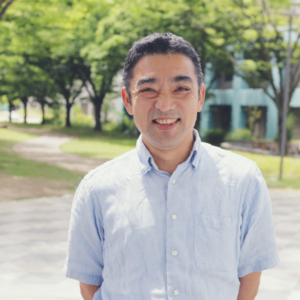Message from the Dean
 Infectious diseases, disasters and the rapid evolution of AI technologies make it increasingly difficult to predict changes in society. The term VUCA (coined from the initial letters of Volatility, Uncertainty, Complexity and Ambiguity) describes such a situation where the future is difficult to predict.
Infectious diseases, disasters and the rapid evolution of AI technologies make it increasingly difficult to predict changes in society. The term VUCA (coined from the initial letters of Volatility, Uncertainty, Complexity and Ambiguity) describes such a situation where the future is difficult to predict.
Unfortunately, in order to survive in these times, it is no longer possible to find the correct answer by pursuing a single specialization. So, what should you study at university so that you can continue to be active after graduation? I think it is to think deeply and broadly and act accordingly. To “think deeply”, acquiring specialization is essential. However, it is important not to focus on a single specialization as an absolute. Instead, developing a multifaceted specialization that spans other fields. Hence, the Faculty has developed a ‘diverse education that combines the humanities and sciences’. Additionally, to “think broadly”, recognizing and experiencing what is required in society is important. Therefore, the Faculty emphasizes “practical programs in collaboration with local people”, such as fieldwork and projects that enable students to go to the field, listen to people’s stories and understand social issues. Finally, to “take action”, it is vital that you do not lie about your desire to try. It would be a waste to give up on something because it is slightly different from your current departmental specialization. This is why our department also offers ‘cross-departmental projects’.
In this way, I want you to learn to “think deeply” by broadening your skills from a multifaceted perspective, “think broadly” with a view to bettering society as a whole, and actively “act” on your aspirations. You will grow through trial-and-error repetition, such as realizing the need to acquire additional specializations by going into the field, or thinking about what needs to be improved in order to make the things and systems created by making full use of our own specializations useful in actual society.
Dean of Facuty of Collaborative Regional Innovation
Nobuhiko MATSUMURA
